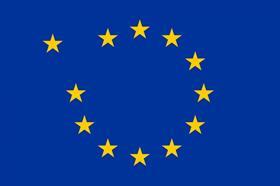
British Prime Minister Theresa May was forced to present a markedly different set of policies from the Conservative's manifesto in today’s Queen’s Speech, having seen her majority wiped out by Jeremy Corbyn’s Labour Party in the recent general election.
Out went manifesto pledges such as the expansion of grammar schools, social care reform and a free vote on bringing back fox hunting. However, the government’s determination to achieve a hard Brexit seemingly remains unchanged.
May’s programme includes repealing EU laws, leaving the Customs Union so that the country can set its own taxes on imports, and controlling immigration.
The government is expected to commit to allowing the 'brightest and the best' to continue coming to the UK, while placing restrictions on low-skilled workers, a major concern for an agriculture sector that heavily relies on low-skilled seasonal labour.
Ross Murray, president of the Country Land & Business Association (CLA), which represents landowners, farmers and rural businesses, told Farming UK: “The Immigration Bill is a chance for Government to provide clarity on how it will ensure businesses across the rural economy have access to the workers they need.”
The speech also includes an Agriculture Bill to create a system of support for the sector once the UK leaves Brexit, taking farmers out of the Common Agricultural Policy (CAP) and leaving them without EU subsidies.
The National Farmers' Union (NFU) said that the new bill aims to create “stability” for farmers and ensure an “effective system” of support to replace CAP.
However, the government has provided no details on how such a system will operate or how generous it will be to UK farmers. The bill does suggest that farmers will need to become 'self-reliant' and 'more competitive, productive and profitable'.
“Getting Brexit right for farming is of fundamental importance to the rural economy and we welcome the fact it will be subject to detailed scrutiny during the passage of a dedicated Agriculture Bill,” said Murray. “We will press for this Bill to deliver absolute certainty for farmers that the current system of support will continue funding at current levels for at least five years. This is the vital reassurance that we have campaigned for since the referendum, and will help farmers and rural businesses to make plans for the medium term.”
Nevertheless, with the Conservatives now requiring the support of the controversial Democratic Unionist Party in Northern Ireland to achieve a slim majority in Parliament, and with no confidence and supply deal yet determined, none of the above is assured. Many analysts even predict that a second election will be held before the end of the year.



